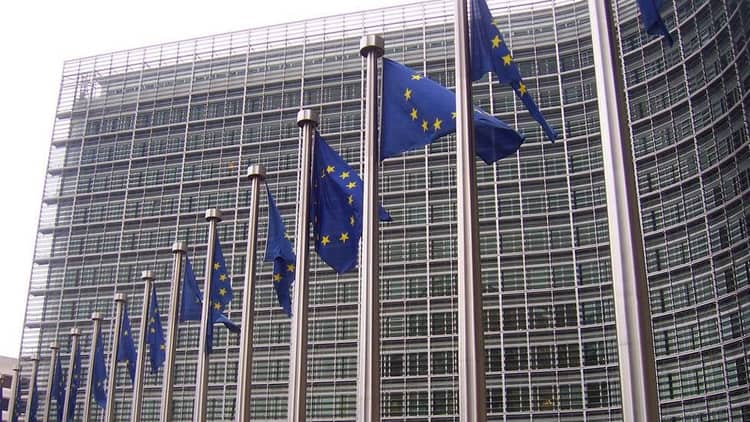The Diplomat
European citizens show increased trust in the EU and maintain “strong and consistent support” for the EU’s response to Russia’s aggression against Ukraine, according to the Summer 2022 Standard Eurobarometer survey.
An overwhelming majority of EU citizens support investments in renewable energy and measures to reduce the EU’s dependence on Russian energy sources. The euro’s approval rating has never been higher. However, Europeans are increasingly concerned about the economic situation in the EU and in their own country.
General perception of the EU
The Eurobarometer, conducted in June and July 2022, shows that 65% of Europeans are optimistic about the future of the EU, an increase of three points compared to a similar survey conducted between January and February this year, before Russia’s aggression against Ukraine.
The positive image of the EU now stands at 47 per cent, its highest level since autumn 2009, while 36 per cent of respondents have a neutral opinion and 16 per cent have a negative view. Moreover, 49% of Europeans tend to trust the EU and 34% trust their national government.
Response to Russia’s invasion of Ukraine
In line with previous polls, citizens confirm their strong support for the EU’s response to Russia’s war of aggression against Ukraine. In terms of EU actions, humanitarian aid receives the highest support (92%), followed by the reception in the EU of Ukrainians fleeing the war (90%). 78% of Europeans support the economic sanctions imposed by the EU on the Russian government, companies and citizens. Almost seven out of ten respondents (68%) are in favour of financing the supply and delivery of military equipment to Ukraine. The absolute majority of respondents are satisfied with the response of both the EU (57%) and their national government (55%).
Energy and energy security
An overwhelming majority of EU citizens agree that the EU should invest in renewable energy (87%), reduce its dependence on Russian energy sources (86%) and that gas storage facilities in EU countries should be filled quickly to allow for uninterrupted gas supplies during the winter (86%). In addition, 85% believe that increasing energy efficiency will make us less dependent on energy producers outside the EU and 83% are in favour of EU Member States buying energy from other countries together to get a better price. 78% of respondents say they have recently taken steps to reduce their energy consumption or plan to do so in the near future.
The economy and the euro
The positive perception of the state of the European economy has decreased by 5 percentage points since the beginning of 2022 and now stands at 40%. The majority of respondents (51%) believe that the situation of the European economy is currently bad. In addition, the positive perception of the situation of the domestic economy has also fallen by 5 percentage points to 34%; 64% of respondents believe that the economic situation in their country is bad, while the majority believe that it will get worse in the next twelve months (53%).
Meanwhile, support for the euro is rising, reaching an all-time high: eight out of ten respondents in the euro area and 72% in the EU are in favour of the single currency. More than half of Europeans (56%) believe that the EU’s largest economic stimulus package (NextGenerationEU) can be effective in responding to current economic challenges.
Europeans’ main concerns at national and EU level
Europeans’ main concerns reflect a pessimistic perception of the economy. At both national and EU level, concerns about inflation and energy supply have grown significantly, with inflation and energy supply ranking first and second respectively. When asked what are the most important problems currently facing the EU, more than a third of respondents mention “rising prices/inflation/cost of living” (34%) and “energy supply” (28%), along with the “international situation” (also 28%).
Rising prices/inflation/cost of living” is also a major concern at the national level for more than half of the respondents (54%), followed by “energy supply” (22%) and the “economic situation” (20%). This is not surprising, as more than six out of ten respondents (62%) say that the war in Ukraine has had serious consequences for their personal finances.
Covid-19
Citizens continue to consider that the national and EU response to the coronavirus pandemic has been satisfactory. More than half of the respondents are satisfied with the measures taken by their respective governments and by the EU to fight the coronavirus pandemic (56% in both cases). Satisfaction with the response, both at EU and national level, has also increased in 23 Member States. Confidence that the EU will take the right decisions in the future to deal with the coronavirus pandemic has also increased and is now the view expressed by six out of ten respondents (63%).







